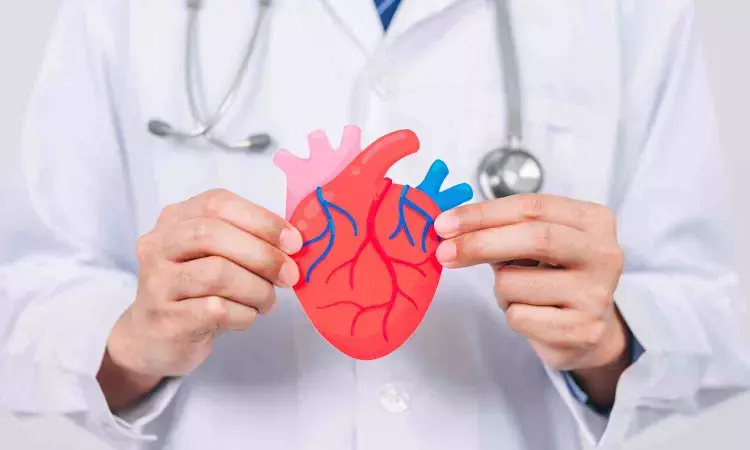- Home
- Medical news & Guidelines
- Anesthesiology
- Cardiology and CTVS
- Critical Care
- Dentistry
- Dermatology
- Diabetes and Endocrinology
- ENT
- Gastroenterology
- Medicine
- Nephrology
- Neurology
- Obstretics-Gynaecology
- Oncology
- Ophthalmology
- Orthopaedics
- Pediatrics-Neonatology
- Psychiatry
- Pulmonology
- Radiology
- Surgery
- Urology
- Laboratory Medicine
- Diet
- Nursing
- Paramedical
- Physiotherapy
- Health news
- Fact Check
- Bone Health Fact Check
- Brain Health Fact Check
- Cancer Related Fact Check
- Child Care Fact Check
- Dental and oral health fact check
- Diabetes and metabolic health fact check
- Diet and Nutrition Fact Check
- Eye and ENT Care Fact Check
- Fitness fact check
- Gut health fact check
- Heart health fact check
- Kidney health fact check
- Medical education fact check
- Men's health fact check
- Respiratory fact check
- Skin and hair care fact check
- Vaccine and Immunization fact check
- Women's health fact check
- AYUSH
- State News
- Andaman and Nicobar Islands
- Andhra Pradesh
- Arunachal Pradesh
- Assam
- Bihar
- Chandigarh
- Chattisgarh
- Dadra and Nagar Haveli
- Daman and Diu
- Delhi
- Goa
- Gujarat
- Haryana
- Himachal Pradesh
- Jammu & Kashmir
- Jharkhand
- Karnataka
- Kerala
- Ladakh
- Lakshadweep
- Madhya Pradesh
- Maharashtra
- Manipur
- Meghalaya
- Mizoram
- Nagaland
- Odisha
- Puducherry
- Punjab
- Rajasthan
- Sikkim
- Tamil Nadu
- Telangana
- Tripura
- Uttar Pradesh
- Uttrakhand
- West Bengal
- Medical Education
- Industry
Drug Combo Shows Promise in inducing heart regeneration and Restoring Cardiac Function: Study

Heart failure patients may one day be able to restore cardiac function with medications that revive the body's ability to regenerate heart muscle, a novel study at UT Southwestern Medical Center suggests.
Heart failure affects close to 30 million people worldwide. An underlying cause is the inability of the adult myocardium-the muscle layer that helps the heart pump blood-to regenerate after injury, such as a heart attack.
In a study published in Nature Cardiovascular Research, a team from UT Southwestern demonstrated that two FDA-approved drugs, paromomycin (Paro) and neomycin (Neo), improved left ventricular systolic function and decreased scar formation in both small and large animal models after a cardiac injury. The medications, when given in combination, target two proteins that regulate the heart muscle’s regeneration capabilities.
“Our study suggests that pharmacological targeting of the transcription factors Meis1 and Hoxb13 can be a viable therapeutic option for patients with heart failure,” said study leader Hesham Sadek, M.D., Ph.D., Professor of Internal Medicine in the Division of Cardiology and Associate Director of the Hamon Center for Regenerative Science and Medicine at UT Southwestern. “Heart muscle regeneration is present in mammals in utero and for a brief window of time after birth but is lost shortly thereafter because it is blocked by Meis1 and Hoxb13. By inhibiting the transcriptional activity of these proteins with a combination of Paro and Neo, we can induce cardiac muscle replication and stimulate heart regeneration.”
Paro and neo are naturally occurring antimicrobials used to treat parasitic and bacterial skin infections and to decrease the risk of infection after intestinal surgery, among other indications. The drugs were identified from a group of hundreds of potential medications via the study group’s unique platform for detecting FDA-approved drugs that can be repurposed to target new diseases.
Paro and Neo were then tested on animals to determine their effectiveness. The researchers discovered that combining the drugs was most effective in turning off the proteins’ regulation of cell growth. Importantly, the effectiveness of these two drugs in inducing regeneration in large animals holds promise for their potential use in human clinical trials.
The findings build on more than a decade of research at UTSW to identify the capacity of the heart to regenerate myocardial muscle. Earlier studies looked at factors that mediate loss of this regenerative capacity, including the identification of Meis1 and Hoxb13 as key regulators. The latest study is the first to show a drug combination that can induce heart regeneration in small and large mammals.
“The fact that these are FDA-approved drugs with established safety profiles makes it much easier to start testing this in humans in the near future,” said Dr. Sadek, who is also Professor of Biophysics and Molecular Biology at UTSW. “Further studies can help us better understand the efficacy of pro-regenerative therapeutics and accelerate their delivery to the clinical setting.”
Reference:
Ahmed, M.S., Nguyen, N.U.N., Nakada, Y. et al. Identification of FDA-approved drugs that induce heart regeneration in mammals. Nat Cardiovasc Res 3, 372–388 (2024). https://doi.org/10.1038/s44161-024-00450-y
.
Dr Kamal Kant Kohli-MBBS, DTCD- a chest specialist with more than 30 years of practice and a flair for writing clinical articles, Dr Kamal Kant Kohli joined Medical Dialogues as a Chief Editor of Medical News. Besides writing articles, as an editor, he proofreads and verifies all the medical content published on Medical Dialogues including those coming from journals, studies,medical conferences,guidelines etc. Email: drkohli@medicaldialogues.in. Contact no. 011-43720751


